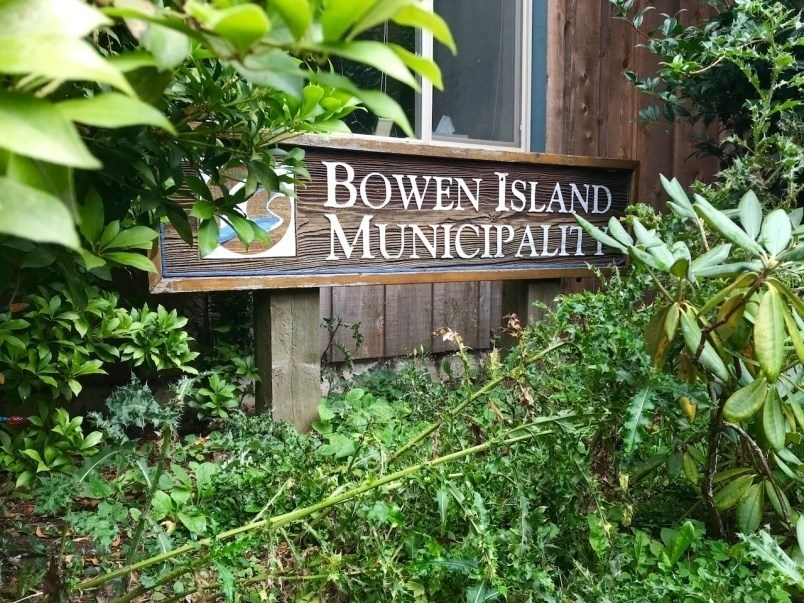Council made a firm stand against vehicle repair as a home occupation at its regular council meeting Nov. 8.
Sweeping Land Use Bylaw amendments — the bylaw formerly known as “housekeeping” — unanimously passed third reading but with some crucial changes.
First the contentious subject of automobile repair: instead of limiting home-occupation vehicle repair to one vehicle per calendar month (or, as it is now, one vehicle at a time), council opted to ban home occupation vehicle repair, period. Anyone wanting to conduct such business will need to apply for a rezoning. Any businesses operating now will be allowed to continue under the previous regulations – until they cease operations for six months or move.
Bowen Island Municipality had been flooded with letters in support of a business on the west side of the island that had opened under this loophole.
The main automotive repair shop on-island – which had had to go through an extensive rezoning to open two decades ago – maintained that the loophole that appears to allow home-based commercial repair relies on a staff interpretation, rather than actually allowing commercial repairs across the island.
“The question I’ve always had about this is what is the bottom-line intent,” said Coun. Maureen Nicholson. “If the bottom line is we don’t want [vehicle repair] as a home occupation, then the bylaw should support that.”
However, islanders who collect or repair cars as a hobby can rest easy – “hobby” vehicle repair was removed from the home occupation section of the bylaw. Previously, hobbyists had been concerned they’d be held to the same standards as vehicle repair garages.
The changes also include a modification to the definition of “derelict vehicle.” The bylaw will allow vehicles that are undrivable or unlicensed for more than a year to be kept if stored in a building or structure or covered by a tent with a means of catching fluid drips or leaks. The vehicle in question also can’t be visible from the highway or other properties.
In another matter of public interest, domestic agriculture will still change from a principal use to a secondary use across the island. Councillors also opted not to fiddle with the definition of “domestic agriculture,” instead directing staff to review Land Use Bylaw regulations “with a view to permit low-impact sale of agriculture products.”
In an unusually divided vote back in September, council had opted to keep the Cape Roger Curtis Development Permit Area (previously slated for removal) in the Land Use Bylaw. Staff can start the process of reintroducing it to the Official Community Plan so that it may once again be enforceable.
The bylaw now just needs the formality of adoption.
Be gone pesky… chemicals
A cosmetic pesticide ban for the island unanimously passed first reading.
While BIM cannot regulate pesticide use on industrial, commercial, or institutional lands, the ban is to apply to “outdoor trees, shrubs, flowers, ornamental gardens, ornamental plants, or turf in, under or upon any public [residential] lands or private lands.” Non-residential lands such as the school or golf course wouldn’t come under the ban. (They’re not residential).
Under the bylaw, one may apply for a permit to apply pesticides. Some noxious weeds – such as giant hogweed and knotweed – will still be fair game for pesticides. The bylaw also doesn’t apply to non-synthetic biological pest control, pesticides applied to or inside buildings or pesticides that manage pests that transmit human diseases or affect agriculture or forestry.
The bylaw defines pesticide as “a micro-organism or material that is represented, sold, used or intended to be used to prevent, destroy, repel or mitigate a pest.”
A 2020 Bowen Island FoodResilience Society survey found 90 per cent of its 143 respondents would support a pesticide ban on Bowen.
Picking up the pesticide ban baton, the Environment and Climate Action Advisory Committee struck a subcommittee that researched and wrote the pesticide bylaw, based on similar legislation in neighbouring municipalities.
BIM will hold a public information meeting before second reading.
Snug Cove Cultural Corner
The final phase of the Cove Commons project is to start construction in the new year.
The nearly $400,000 town square – funded through grants – in the library and Hearth grounds includes covered programming space, a covered stage, new seating, a redesigned courtyard, a small park outside of the library annex and an accessible path running between the blue cottage and the library.
Accessibility praise
Camp Bowen Division of the Canadian Organization of the Blind and Deafblind and the Bowen Island Accessibility Group thanked BIM for installing a tactile plate near the Cardena Road bus stop. “This makes the cove safer and has particular benefits to blind and deafblind Bowen residents and visitors,” wrote Jocelyn Gladysz, division president for Camp Bowen. “Thank you for continuing to increase Bowen Island’s accessibility and creating an island that is working towards being more inclusive of everyone.”
Dorman Point
A preliminary concept plan for Dorman Point came to Metro Vancouver Regional Parks Committee Wednesday.
Metro Vancouver bought the land for $2.7 million in 2020, absorbing the previously private 1.21 hectares into Crippen Park. However, the land is not yet open to the public.
The plan includes a weather shelter, viewing platform, seating, fencing an access trail, beach access and signage. The 2022 Regional Parks Capital Development allocates $500,000, said a staff report.
Fall 2022 is the target opening for public access, said the report.

.jpg;w=120;h=80;mode=crop)

